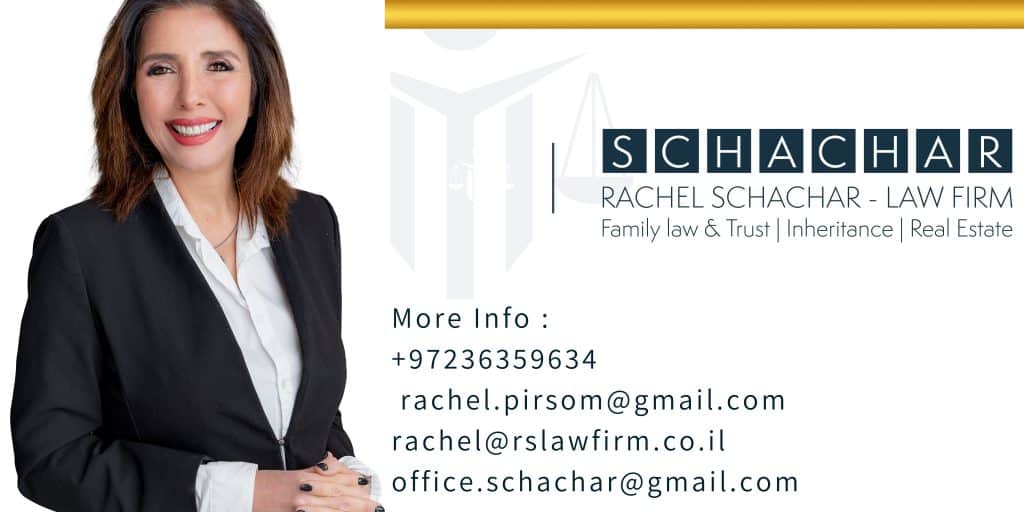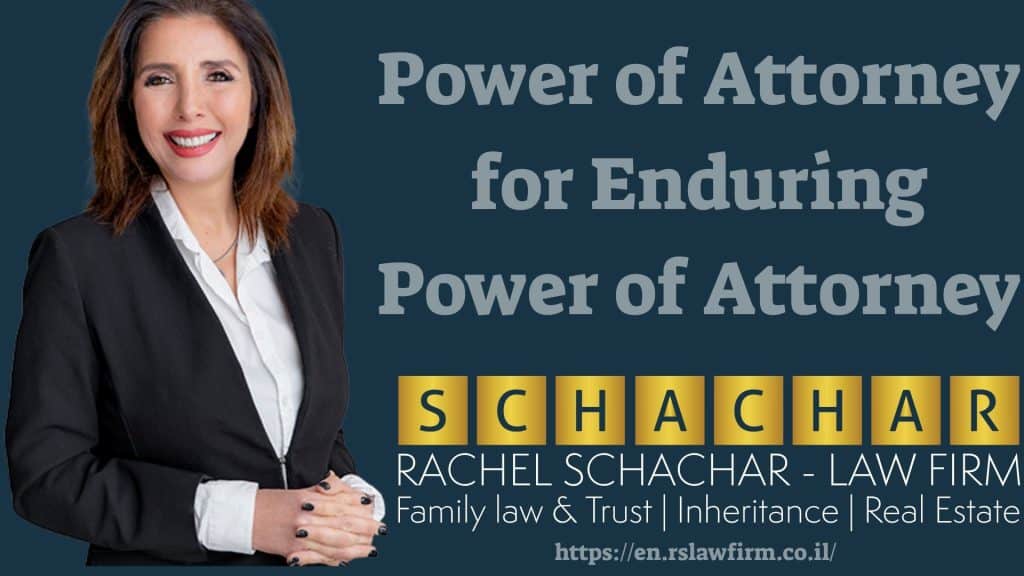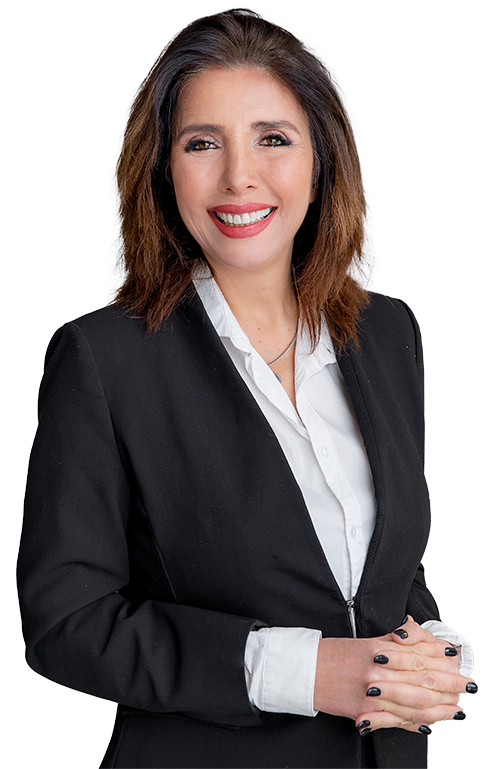Table of Contents:
| Introduction | Defining Enduring Power of AttorneyImportance and Purpose |
| Creating an Enduring Power of Attorney | Age and Comprehension RequirementsSpecialized Lawyer’s RoleScope and Types of MattersAppointing Multiple AttorneysJoint vs. Separate Decision-MakingConsent of Attorney-in-Fact |
| Steps in the Procedure | Qualified Lawyer’s InvolvementPreliminary InstructionsConfirming Consent and UnderstandingLegal Guidance and ExplanationOnline Submission and Deposit Options |
| Required Documents | Expert Opinions and Additional AttachmentsIdentity Card CopiesConfidentiality Waiver FormMedical Certificates |
| Power of Attorney’s Role | Powers and LimitationsAppointing a Suitable ProxyReporting ResponsibilitiesReporting to Informed PersonsReporting to the General Custodian |
| Actions and Limitations | Permitted and Prohibited ActionsActions Requiring Explicit MentionActions Requiring Court Approval |
| Decision-Making by the Proxy | Following Advance InstructionsUnderstanding the Person’s WillCourt Applications and Records |
| Involvement of Family and Friends | Court Intervention in Decision-Making |
| Limitation of Powers by the Court | Appointment of Replacement Proxy or Guardian |
| Power of Attorney’s Compensation | Salary Stipulations and Reimbursement |
| Expiration and Termination | Conditions for ExpirationNotification and Termination Procedures |

A power of attorney is the person who has been granted the powers to make decisions on behalf of the person who appointed him through the continuing power of attorney
The limitations detailed below apply to the power of attorney
A power of attorney is the person who has been granted the powers to make decisions on behalf of the person who appointed him through the continuing power of attorney.
- The power of attorney may make any decision and perform any action in the matters authorized to them in the power of attorney, with the exception of the stipulations that appear below and with the exception of actions that must be performed personally, such as voting in elections, granting a divorce, etc.
- It is mandatory to obtain the consent of the power of attorney for his appointment by the power of attorney and he cannot be forced to act as a power of attorney. For more information, see drafting a lasting power of attorney and depositing it.
- Any person can be appointed as a proxy in a continuing power of attorney, except for those who meet one of the following conditions:
- He is under the age of 18.
- He is a person who has been appointed a guardian
- A lasting power of attorney that he made for himself comes into effect (that is, someone else makes the decisions on his behalf in certain matters)
- He is a paid medical, social, nursing or rehabilitation therapist of the appointing person (except a relative)
- He provides the appointing person with a paid place to live (with the exception of a relative)
- He has already been appointed as a proxy for 3 people who are not members of his family
- He is the attorney who signed the Lasting Power of Attorney
- This is a continuing medical power of attorney and he is a professional who signed this power of attorney (doctor/psychologist/brother/attorney)
- A person who meets one of the following conditions cannot be appointed as a proxy for property matters:
- A person who was declared bankrupt by the court (and was not granted a discharge)
- Those who have been declared a severely restricted customer by the Bank of Israel
| Requirement | Description |
| Age | 18+ |
| Consent | Mandatory |
| Proxy Selection | Various Conditions Apply |
| Legal Role | Restrictions for Professionals |
| Court Approval | For Specific Actions |
| Termination | Conditions for Expiry |
Report of the power of attorney on his actions
Report to an informed person
- The power of attorney (the appointor) shall indicate in the continuous power of attorney the name of one or more persons (informed persons), to whom the power of attorney will report on decisions or actions taken on the issues the power of attorney deals with.
- The appointer may determine that a copy of the power of attorney will be delivered to the informed person.
- The informed person will not be a relative of the proxy (unless the proxy is a relative of the appointor).
- The report will be made at the times and in the manner determined by the appointer, unless the appointer expressly stated otherwise.
- The informed person may demand from the power of attorney information about decisions he made and actions he took on the subjects detailed in the power of attorney.

Report to the General Custodian
- The power of attorney (appointee) may stipulate in the continuing power of attorney that the power of attorney will report his actions to the general guardian.
- The person who stipulated this in the continuing power of attorney will notify the general guardian upon depositing the power of attorney.
- In this case, from the day the power of attorney enters into force, the reporting obligations that apply to guardians will apply to the power of attorney (unless he is granted an exemption from reporting by the general guardian).
Actions that a power of attorney cannot perform
- The power of attorney cannot perform these actions on behalf of the person:
- Actions that must be performed personally, such as granting a divorce.
- conversion of religion.
- To make decisions or perform actions that the power was authorized to do as proxy or guardian for another.
- Giving consent to give up a child for adoption.
- Participation in elections.
- Actions or expressions of desire according to the dying patient law, such as: consent to tests, surgeries, resuscitation, connection (only) to the ventilator, chemotherapy treatments, radiation or dialysis, etc. (For the purpose of these actions, a power of attorney must be drawn up to make decisions about medical treatment for a dying patient).
- Drawing up a will in the name of the executor and determining beneficiaries regarding amounts to be paid due to the person’s death, such as: determining the names of beneficiaries in provident funds, education fund, pension fund, managers’ insurance, life insurance policy, etc.
| Restrictions | Conditions |
| Personal Actions | Exclusions |
| Proxy Selection | Prohibited Roles |
| Reporting | Informed Persons |
| Court Approval | Required Actions |
| Decision-Making | Following Advance Instructions |
Actions that require an explicit mention in the power of attorney
- There are actions that require explicit certification in the power of attorney, and if they were not specifically mentioned, the power of attorney will not be able to perform them even if they are included in the field for which he was generally granted powers to act:
- Carrying out operations in pension products (for example, switching between pension entities and between pension instruments or changing the investment route of the pension savings funds). Despite this, the power of attorney may make withdrawals from provident funds and training funds and submit an application for a pension allowance in the name of the power of attorney.
- Giving consent for a psychiatric examination, psychiatric treatment or hospitalization in a psychiatric hospital, or for release from said hospitalization.
- If at the time the procedure is required, the appointing person objects to its execution, the procedure cannot be performed even if he agreed to it in advance, unless the continuing power of attorney was also signed before a psychiatrist, and the appointing person expressly authorized the power of attorney to give consent despite his objection.
- When signing such a power of attorney, the psychiatrist should explain to the appointing person the meaning of the consent and its results, and get the impression that the power of attorney was given with free and voluntary consent, without unfair pressure or influence being exerted and without taking advantage of distress or weakness.
- In such a case, the proxy’s consent to hospitalization for up to 48 hours, or until the person is able to give informed consent, will be valid, whichever comes first.
- Donations in an aggregate amount of up to NIS 100,000 and to those specifically mentioned up to the amount stipulated in the power of attorney.
- Gifts that are not customary, in an aggregate amount of NIS 100,000 and to those specified in the power of attorney and in the specified amount.
- Loans in an aggregate amount of up to NIS 100,000 and to those specifically mentioned up to the amount stipulated in the power of attorney.
- Another legal action or several related legal actions, the total value of which exceeds 100,000 NIS and does not exceed 500,000 NIS.

pay attention
Investment of funds does not require an explicit mention in the power of attorney, but there are specific rules regarding it as detailed below.
| Non-Permitted Actions | Description |
| Personal Matters | Divorce, Religion |
| Proxy/Guardian | For Another |
| Adoption | Child Relinquishment |
| Political | Participation in Elections |
| Medical | Medical Treatment Decisions |
| Testamentary | Wills and Beneficiaries |
Actions that require court approval
- The following actions, as well as the commitment to perform them, require the prior approval of the court:
- Transfer, encumbrance, distribution or liquidation of a financial unit in agriculture, industry, craft or trade, or of an apartment.
- A real estate transaction, with the exception of renting a property for a period not exceeding five years, to which the provisions of the Tenant Protection Law do not apply.
- Check or encumbrance of a right to receive a right in real estate.
- Rent to which the Tenant Protection Law applies.
- Relinquishment of a part of the estate or transfer or encumbrance of a part or part of the estate.
- Donation in an amount that exceeds the amount determined in the beautification of and or in an amount exceeding NIS 100,000, as long as it was authorized by the power of attorney.
- A gift that is not customary in the circumstances of the case and was not given express consent in the power of attorney.
- A gift that is not customary in the circumstances of the case, that exceeds the amount specified in the power of attorney or that exceeds NIS 100,000.
- Another legal action, including several actions related to one transaction, the value of which exceeds NIS 500,000 if certification was given in the power of attorney, or NIS 100,000 if no certification was given.
- Withdrawal of funds from a provident fund contrary to the provisions according to section 23 of the Law on the Supervision of Financial Services (Provident Funds), for example, withdrawing funds in one payment that is not from the compensation component or not by capitalizing a budget pension allowance, or not at the times and under the circumstances that the law permits to withdraw the funds from a fund Providence, as well as the encumbrance or garnishment of those funds.
- Giving a guarantee or giving a loan, if they were not authorized by the power of attorney.
- Providing a loan that has been certified, in an amount that exceeds the amount stipulated in the power of attorney or in an amount that exceeds NIS 100,000.

pay attention
Investment of funds does not require approval from the court, but there are specific rules regarding it as detailed below
| Explicit Mention Required | Description |
| Pension Products | Operations |
| Psychiatric Treatment | Consent |
| Donations/Gifts/Loans | Specific Amounts |
| Legal Actions | Value Limitations |
| Withdrawal of Funds | Financial Rules |
Through the decision making of the proxy
- If the power of attorney gave preliminary instructions – the power of attorney must act in accordance with these instructions, unless:
- The action is impossible.
- The operation involves a financial expenditure that is not available to the beautifier of the power.
- The action is illegal.
- The operation may cause serious damage to the power plant.
- In the following cases, the power of attorney is prohibited from acting according to preliminary instructions:
- If the power beggar is able at that time to understand the matter for which the instruction was given, and expresses a desire to deviate from it.
- In a material personal matter or a material medical matter, if the power of attorney opposes the implementation of the directive at the time of the act, unless the power of attorney specifically stated that the action must be carried out even if the power of attorney objects to it later.
- If the person did not give advance instructions – the power of attorney must try to understand his wishes in real time, if this is possible.

- If it is not possible to understand the person’s will in real time – the power of attorney must act according to the person’s will as expressed earlier, or as can be learned from the power of attorney, or from the person’s behavior in the past, from his world view and lifestyle in the past.
- If the person instructed the power of attorney to prefer his previous will over his current will, the power of attorney must act accordingly, except in the following cases:
- In a material personal matter, the power of attorney will not act against the person’s will, if he opposes it at the time of the act or close to it.
- In a material medical matter, the power of attorney will not act against the person’s will if he objects to it at the time of the act or close to it.
- If it is not at all possible to understand what the person’s will could have been in the past, and what his will is in the present – the power of attorney must act according to the person’s best interests.
- A power of attorney may apply to the court for instructions in connection with an advance directive that there is difficulty in carrying out, or a request to act according to an advance directive that the power of attorney opposes the execution of, so that the court can determine whether he is freed from them.
- A power of attorney can apply to the court to approve an action he has taken – as long as the power of attorney has not left advance directives in the same matter.
- The power of attorney should keep records regarding material decisions made on behalf of the power of attorney.
| Actions Requiring Court Approval | Description |
| Real Estate Transactions | Various Conditions |
| Donations/Gifts | Amount Limitations |
| Financial Transactions | Value Thresholds |
| Guarantees/Loans | Unauthorized Actions |
| Provident Funds | Withdrawal Rules |
Involvement of family members and friends in decision-making by the power of attorney
- If no prior instructions have been given in connection with a certain issue, the following parties can apply to the court to instruct the power of attorney how to exercise his powers:
- Beautifies the power.
- His relatives – spouse, father, mother, son, daughter, brother, sister, grandfather, grandmother, grandson, granddaughter.
- His close friends.
Limitation of the power of attorney by the court
- A court may limit the powers of the power of attorney, if it deems it necessary.
- The court may also appoint a replacement power of attorney, if the power of attorney left such an instruction.
- If no substitute representative is appointed, the court may also appoint a guardian.
- Limitation of powers or the appointment of a guardian can be requested by any of the following parties:
- The Attorney General or his representative.
- Beautifies the power.
- His relatives – spouse, father, mother, son, daughter, brother, sister, grandfather, grandmother, grandson, granddaughter.
- His close friends.
- Power of attorney salary
- The appointing person may stipulate in the power of attorney that a power of attorney will be entitled to receive a salary. In such a case, he will also have to determine the scope of the salary.
- The power of attorney is entitled to reimbursement of reasonable expenses incurred for the appointing person in the performance of his duties.
Expiration of Lasting Power of Attorney
- A continuous power of attorney will expire if one of the following situations occurred:
- A certain condition that the person stipulated in the power of attorney has been fulfilled.
- The executor or the power of attorney dies.
- There has been a change in the status of the power of attorney and he no longer meets the required conditions (for details of the conditions, see the Power of Attorney entry for continuing power of attorney).
- The power of attorney was appointed due to being a professional and his license was revoked.
- The power of attorney has informed the power of attorney (or his spouse) in writing that he no longer wishes to act as a power of attorney.
- The power of attorney was the spouse of the power of attorney and the marriage relationship had expired (unless it was explicitly stated otherwise in the power of attorney).
- The power of attorney was known to the public of the power of attorney and stopped running a joint household with him with the intention of breaking up family life permanently.
- Notification of the expiration of the power of attorney must be given to the general guardian:
- If the power of attorney has not yet entered into force – the appointing person (the person who drew up the power of attorney) must notify the general guardian of its expiration.
- If the power of attorney takes effect – the power of attorney must notify the general guardian of its expiration.

- The notification to the general guardian will be made online, through smart identification or in the personal area, through a personal password given at the time of depositing the power of attorney.
- Termination of the power of attorney
- If a power of attorney has been revoked or expired, the power of attorney must hand over to the power of attorney his assets in his possession, and the documents pertaining to them.
- In the event of the death of the power of attorney, the power of attorney for property matters will be authorized, unless the person has determined otherwise, to take the following actions for a period not exceeding 90 days, without needing court approval:
- Pay from the funds of the power of attorney current payments for services provided during the validity of the power of attorney.
- To pay expenses from the money of the beautifying force Probability of burial and mourning.
- Manage a rented property or a business that requires ongoing management.
Power of Attorney Termination and Transition
| Termination | Description |
| Expiry Conditions | Multiple Scenarios |
| Notification | General Guardian |
| Post-Termination | Handling of Assets |
| Death of Power of Attorney | Temporary Authority |
| Termination by the Court | Limitation or Replacement |

Experience and Expertise in Durable Power of Attorney: Choose Rachel Schachar Law & Notary Firm
At Rachel Schachar Law & Notary Firm, we understand the critical importance of planning for your future when it comes to matters of durable power of attorney. With years of dedicated experience in family law and a specialization in the intricacies of durable power of attorney, our firm stands ready to assist you in crafting a comprehensive and tailored plan. We believe that everyone deserves peace of mind, knowing that their affairs will be handled according to their wishes when they are no longer able to make decisions themselves. Our team of knowledgeable attorneys is committed to guiding you through the process, whether you require assistance in personal or property matters, and whether you seek specific instructions or prefer to grant your appointed attorney independent discretion. When it comes to securing your future, trust Rachel Schachar Law & Notary Firm to provide the expert legal counsel and support you need.




